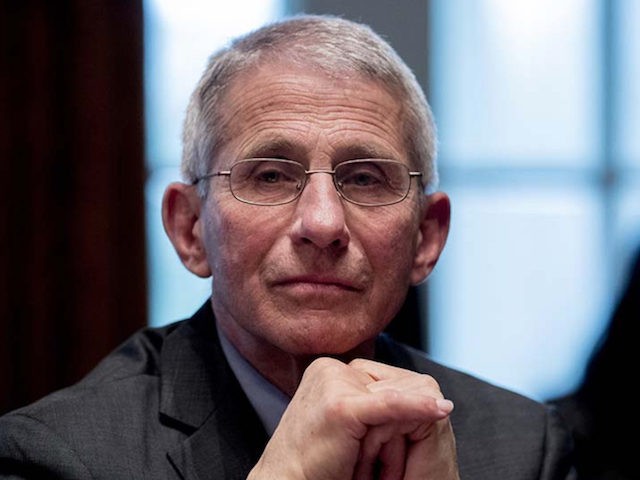States experiencing growing novel coronavirus outbreaks may need to pause or roll back their reopening stages without necessarily reimposing an “absolute shutdown,” Dr. Anthony Fauci, America’s top infectious disease expert, told a House panel on Tuesday.
Asked whether states experiencing a surge in coronavirus infections may need to reimpose quarantine measures, Fauci, a member of the White House Coronavirus Task Force, told the House Energy and Commerce Committee:
I wouldn’t necessarily say an absolute shut down lockdown, but if someone is going from [the] gateway to phase one to phase two and they get into trouble in phase two, they may need to go back to phase one. I don’t think they necessarily need to go back to lockdown.
The U.S. Centers for Disease Control and Prevention (CDC) reopening guidelines describe “gateway” as the requirements that must be satisfied before a state considers moving into phased reopening, like a 14-day decrease in daily new cases.
In March, most of the United States shut down to stem the spread of the deadly and highly contagious COVID-19, the disease associated with the novel coronavirus.
Echoing Fauci, Dr. Robert Redfield, the CDC director, told House lawmakers that protecting those vulnerable to the Chinese coronavirus, “no longer” means “we have to shut down schools, shut down you know the economy.”
“It means we have to focus on how to prevent the consequences of this virus,” he added.
Governors in states experiencing a significant increase in coronavirus infections have been reluctant to reimpose lockdown measures, with some saying it is an option of last resort.
Fauci, the director of the National Institute of Allergy and Infectious Diseases (NIAID), and Redfield testified on Tuesday along with two other officials from the U.S. Department of Health and Human Services (HHS) involved in the Trump administration’s response to the ongoing COVID-19 outbreak.
NIAID is a component of HHS’s National Institutes of Health (NIH).
When asked where the United States stands in its fight against COVID-19, Dr. Fauci said it is a “mixed bag,” conceding that while some states are seeing a “disturbing surge” of coronavirus cases, others are doing “very well.”
Fauci testified:
The way you address [the surge] … is you have to have the manpower, the system, the testing to identify, isolate, and contact trace in an effective way so that when you see those increases, you can understand where they’re coming from, and you can do something about them. Right now, the next couple of weeks are going to be critical in our ability to address those surges that we are seeing in Florida, in Texas, in Arizona and other states.
“There are certain parts of the country and certain areas, cities, states that have actually done very well and are following the guidelines that we put together,” he added.
Fauci and Adm. Brett Giroir, the assistant secretary for health at HHS, indicated that they are “cautiously optimistic” that the United States will be ready to deal with a potential spike in cases in the upcoming fall and winter, described by some analysts as a second surge.
Drs. Fauci, Redfield, Giroir, and Stephen Hahn, the U.S. Food and Drug Administration’s (FDA) commissioner, all testified that President Donald Trump had not asked them to slow down testing.
On Tuesday, Trump defended his recent comments about slowing the coronavirus testing rate in the United States, arguing that the growing number of infections resulted from increased testing.
The FDA is part of HHS.

COMMENTS
Please let us know if you're having issues with commenting.